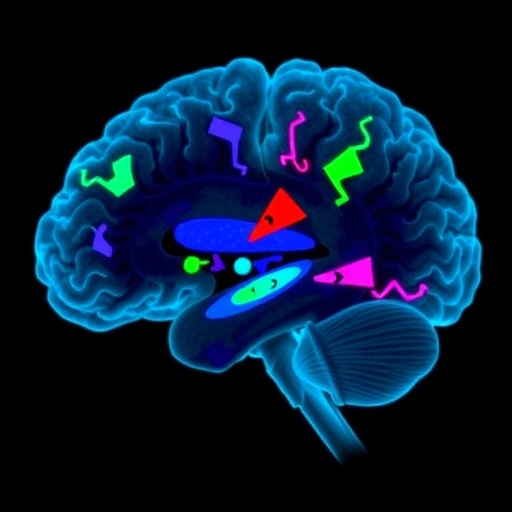In a groundbreaking study poised to redefine therapeutic strategies for one of the most aggressive brain tumors, researchers have uncovered a pivotal molecular mechanism by which ROCK inhibition suppresses glioblastoma progression. This research highlights the intricate relationship between ROCK signaling and the tumor suppressor PTEN, shedding light on a cascade that ultimately downregulates the notorious PI3K/AKT pathway, a critical driver of glioblastoma malignancy. The findings not only offer promising therapeutic avenues but also deepen our molecular understanding of glioblastoma’s resilience and invasiveness.
Glioblastoma remains a formidable challenge in oncology, characterized by rapid proliferation, diffuse infiltration, and resistance to conventional therapies. At the molecular level, aberrations within the PI3K/AKT signaling axis are frequently implicated in promoting tumor survival, growth, and resistance to apoptosis. Previous efforts have aimed to inhibit this pathway directly; however, the redundancy and adaptability of glioblastoma signaling networks have limited the efficacy of such attempts. The new data suggest a more upstream target, ROCK (Rho-associated coiled-coil containing protein kinase), which modulates PI3K/AKT activity indirectly via PTEN, could offer a more effective blockade.
ROCK is a serine/threonine kinase that orchestrates diverse cellular processes, including cytoskeletal dynamics, cell motility, and proliferation. Its role in cancer has been extensively documented, yet its direct influence on glioblastoma progression has remained elusive until now. The research team employed sophisticated molecular biology techniques combined with in vitro and in vivo glioblastoma models to elucidate how ROCK inhibition interferes with tumor growth. Data reveal that lowering ROCK activity restores PTEN functionality, which in turn suppresses the aberrant activation of PI3K/AKT signaling.
PTEN, a well-known tumor suppressor gene, encodes a phosphatase responsible for dephosphorylating PIP3 back to PIP2, thus acting as a negative regulator of PI3K/AKT signaling. Loss or functional impairment of PTEN is a hallmark feature in many glioblastoma cases, resulting in unchecked pathway activation. Intriguingly, ROCK activity appears to intersect with PTEN regulation, implying that pharmacological inhibition of ROCK can potentiate PTEN-mediated control over PI3K/AKT signaling, thereby dampening oncogenic signaling cascades within glioblastoma cells.
Importantly, the study observed that pharmacological agents targeting ROCK produced a significant reduction in glioblastoma cell proliferation and enhanced apoptotic activity. This antitumoral effect was mechanistically linked to the reinstated PTEN function and consequent signaling suppression downstream. These findings validate the therapeutic potential of ROCK inhibitors not merely as ancillary agents but as primary candidates for clinical trials against glioblastoma.
Extensive molecular profiling further revealed that ROCK inhibition induced a phenotypic reversal in glioblastoma cells, mediating effects on cell shape, motility, and invasive capacity. By modifying cytoskeletal organization, ROCK inhibitors disrupted the invasive network that glioblastoma cells exploit to infiltrate healthy brain tissues. This impairment in cell migration ultimately translates into reduced tumor spread, a critical determinant of patient prognosis and therapeutic success.
Another compelling aspect of the study is the demonstration that ROCK inhibition might sensitize glioblastoma cells to existing chemotherapeutic agents. Combination treatments exhibited synergistic effects, lowering the threshold required for chemotherapeutic efficacy and potentially circumventing drug resistance mechanisms. This suggests a viable combinatorial strategy where ROCK inhibitors can enhance the potency of the current standard-of-care treatments, thereby improving clinical outcomes.
The research also employed advanced imaging techniques to visualize the dynamic changes in tumor architecture following ROCK blockade. The images revealed marked disruption of tumor vasculature and decreased microenvironmental support for glioblastoma cells, further compounding the therapeutic effects. Such multidimensional analysis underscores the systemic impact of ROCK inhibition beyond singular cellular effects, enhancing its appeal as a multifaceted anticancer agent.
Further molecular dissection emphasized alterations in downstream effectors of the PI3K/AKT pathway, including mTOR and GSK3β, whose phosphorylation states were significantly impacted by ROCK inhibition. This cascade of molecular events not only constrains tumor growth signals but also influences cellular metabolism and survival pathways, central to glioblastoma’s adaptability under hostile conditions.
From a translational perspective, the study’s insights illuminate new biomarkers for patient stratification and treatment monitoring. The restoration of PTEN activity and attenuation of PI3K/AKT phosphorylation may serve as measurable endpoints to assess therapeutic response, enabling personalized approaches in glioblastoma management. Additionally, these biomarkers could assist in identifying patient subgroups most likely to benefit from ROCK-targeting therapies.
Moreover, the safety and efficacy profiles of available ROCK inhibitors, some of which are already under investigation or approved for other clinical indications, bolster optimism toward rapid clinical translation. The repurposing potential accelerates the timeline for clinical trials and widens the therapeutic arsenal against glioblastoma, which has notoriously suffered from a paucity of effective drug candidates.
While promising, the study also acknowledges the complexity of glioblastoma biology and the necessity for comprehensive trials to unravel potential resistance mechanisms that may arise with chronic ROCK inhibition. Understanding compensatory pathways and long-term cellular adaptations will be crucial to designing robust, sustained treatment regimens.
The implications of this research extend beyond glioblastoma, as aberrant ROCK signaling and PTEN dysfunction are common themes in various malignancies. The mechanistic framework outlined here provides a blueprint for exploring ROCK inhibitors in other aggressive cancers where PI3K/AKT pathway dysregulation plays a central role, potentially revolutionizing targeted cancer therapies.
In conclusion, this seminal work opens new frontiers in glioblastoma therapeutics by establishing ROCK inhibition as a powerful modulator of tumor suppressor PTEN and its downstream oncogenic signaling. The convergence of molecular precision, therapeutic efficacy, and translational feasibility positions ROCK-targeting strategies as a beacon of hope against one of the deadliest brain cancers.
Ongoing research will undoubtedly expand upon these findings, exploring optimal dosing regimens, delivery mechanisms, and combinational approaches, all aimed at improving survival rates and quality of life for glioblastoma patients worldwide. This study marks a pivotal step forward — from molecular insight to clinical possibility — in the relentless fight against this devastating disease.
Subject of Research: Glioblastoma; Molecular mechanisms of ROCK inhibition; PTEN and PI3K/AKT signaling pathways
Article Title: ROCK inhibition suppresses glioblastoma via a PTEN-associated reduction in PI3K/AKT signaling
Article References:
Uzunhisarcıklı, E., Bozkurt, N.M. & Sağlam, A. ROCK inhibition suppresses glioblastoma via a PTEN-associated reduction in PI3K/AKT signaling. Med Oncol 42, 372 (2025). https://doi.org/10.1007/s12032-025-02952-6
Image Credits: AI Generated




